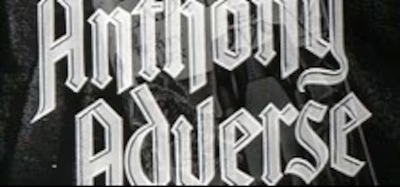Anthony Adverse

Brief Synopsis
Cast & Crew
Mervyn Leroy
Fredric March
Olivia De Havilland
Donald Woods
Anita Louise
Edmund Gwenn
Film Details
Technical Specs

Synopsis
In 1775, petty Italian nobleman Don Luis has married the young and beautiful Maria Bonnyfeather, but because of poor health, has yet to consummate their marriage. While middle-aged Don Luis is away taking a cure, Maria has an affair with the dashing Denis Moore and becomes pregnant. Don Luis challenges Denis to a duel when he discovers Maria's infidelity. Denis is killed, and Maria dies shortly thereafter in childbirth. Don Luis abandons the infant at a convent on St. Anthony's feastday. In honor of the saint, the sisters name the homeless boy Anthony. Ten years later, the boy is taken by Father Xavier to apprentice at Casa de Bonnyfeather. Although Don Luis told John Bonnyfeather that his grandson died along with Maria, the merchant recognizes his daughter's features in the orphan and gives Anthony the surname Adverse in recognition of his difficult life. Anthony grows into a responsible businessman and falls in love with Angela Guisseppi, the cook's daughter. Despite a separation, complicated by Napoleon's invasion of Italy, the couple is reunited and married. Soon after the ceremony, however, Anthony has to leave for Havana to save his benefactor Bonnyfeather's fortune. Because the note he leaves for Angela is blown away by the wind, she does not know where he is and pursues her operatic career. Anthony is frustrated in his attempt to help Bonnyfeather and leaves for Africa to engage in slave trading. Buying and selling human lives corrupts Anthony, but he is redeemed by the death of the generous Brother François, whom he reveres. Anthony returns to Italy to find that Bonnyfeather has died and that his scheming housekeeper, Faith Paleologus, will receive Bonnyfeather's fortune if Anthony does not reach Paris to claim his inheritance. On the road to Paris, Faith and Don Luis, who have been conspiring together, fail to murder Anthony. Once in the city, Anthony is reunited with his friend, Vincent Nolte, who is now a prominent banker on the verge of bankruptcy. No longer interested in riches, Anthony offers his fortune to Vincent and continues his search for Angela. With the help of opera impressario Debrulle, Anthony not only finds Angela, but also discovers that he has a son. Angela admits that she is still singing, but does not confess that she is now known as Mlle. Georges, the infamous opera star and mistress to Napoleon. Anthony discovers her new identity when he sees her perform and decides to leave for America in search of a new life. Angela is loyal to the Emperor, but nobly sacrifices her son, sending him to America with his father.

Director

Mervyn Leroy
Cast

Fredric March
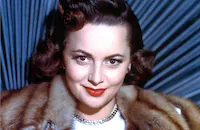
Olivia De Havilland
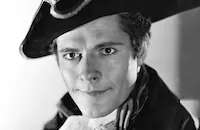
Donald Woods

Anita Louise

Edmund Gwenn

Claude Rains

Louis Hayward

Gale Sondergaard

Steffi Duna

Akim Tamiroff

Ralph Morgan
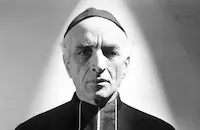
Fritz Leiber
Luis Alberni
Billy Mauch
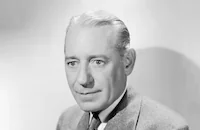
Henry O'neill
Pedro De Cordoba
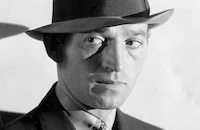
George E. Stone

Joseph Crehan

Rafaela Ottiano
Rollo Lloyd

Leonard Mudie
Marilyn Knowlden
Mathilde Comont

Eily Malyon

J. Carroll Naish

Scotty Beckett
Paul Sotoff
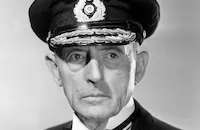
Frank Reicher
Clara Blandick

Addison Richards
William Ricciardi

Grace Stafford
Ann Howard
Joseph King
Charles Fallon
Davidson Clark
Frank Ward
Frank Shannon
Guy D'ennery
George Sorrell
Philip Cooper
Zeffie Tilbury
Ferdinand Munier
Egon Brecher
Brenda Fowler
Tola Nesmith
Myra Marsh

Bess Flowers
Joe Hachey
Juan Duval
Barlowe Borland

Fred Malatesta
Jean De Briac
Arthur Thalasso
Mike Tellegan
Panchita Acosta
Artemis Nigolian
Bernard Siegel
Michael Mark
Sam Appel
Octavio Giraud
Mitchell Lewis
Billy Mcclain
Paul Weigel
Carlos J. De Valdez
Martin Turner

Joan Woodbury
Lal Chand Mehra
Frank Lackteen
Sam Appel
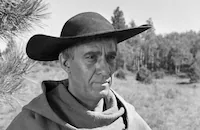
Martin Garralaga
Manuel Lopez
Ray Martin
Pat Washington
John Lester Johnson
Ernest Wilson
James Robinson
George Reed
Art Miles
Dennis D'auburn
Robert Graves
Vivian Tobin
Helen Brown
Lotus Thompson
Lottie Williams
Claude Payton
Dan Colette
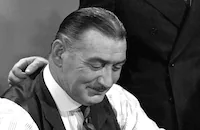
Edward Keane
Antonio Filauri
Harry Semels
Cyril Thornton
Ann Bupp
Crew
Milo Anderson
Henry Blanke
William Cannon
Natale Carossio
Edward Chodorov
Ralph Dawson
Eddie Edwards
Leo F. Forbstein
Aldo Franchetti
Dwight Franklin
Tony Gaudio
Sheridan Gibney
Anton Grot
Carl Guthrie
Fred Jackman
Vic Johnson
Erich Wolfgang Korngold
Milton Krims
Art Lueker
Mickey Marigold
Irva Ross
Jack L. Warner
Western Costume Company
Perc Westmore
Arthur Zellner

Photo Collections
Videos
Movie Clip




Trailer
Film Details
Technical Specs

Award Wins
Best Cinematography
Best Editing
Best Score
Best Supporting Actress
Award Nominations
Best Art Direction
Articles
Anthony Adverse
Allen's substantial tome was an immediate and worldwide hit upon its publication in 1933, and Warners, who were best known as social drama specialists, were eager to demonstrate that they could mount a lush costumer as well as the next studio and secured the rights. The scenario opens in 1775 France, where the Spanish aristocrat Don Luis (Claude Rains) is visiting his chateau with his young new bride Maria (Anita Louise) in tow. While the don is unable to consummate the union, the handsome young Irish officer Denis Moore (Louis Hayward) is not quite so challenged. Discovering the infidelity, Don Luis kills Moore and spirits Maria to the Italian Alps to hide the scandal. There, Maria dies in childbirth, and the nobleman callously abandons her son at a convent.
Deposited as he was on St. Anthony's Day under adverse circumstances, Father Xavier (Henry O'Neill) has a name for his new charge. When the boy (Billy Mauch) reaches ten years old, the priest recommends Anthony for apprenticeship with the Scottish merchant John Bonnyfeather (Edmund Gwenn), not realizing that the kindly trader is, in fact, the orphan's maternal grandfather. As he grows to manhood, Anthony (now played by Fredric March) nurtures an affection for Angela Guiseppe (Olivia de Havilland), the daughter of Bonnyfeather's cook. Their planned elopement is foiled by circumstance, and an embittered Anthony spends years of globetrotting in Bonnyfeather's service, sinking into a life of debauchery.
Redeemed by a sympathetic priest, Anthony returns to Europe, to find that Angela has become a celebrated opera star. He further discovers that Bonnyfeather has died, leaving Anthony his business concerns. Unfortunately, it seems that Don Luis has conspired with Bonnyfeather's conniving housekeeper, Faith Paleologus (Gale Sondergaard) to rob Anthony of his legacy.
The sequence where young Anthony first sojourns to Bonnyfeather's--and gets his few ragged possessions ripped off his back by a band of taunting youths--caused director Mervyn LeRoy some conflict with the industry's morality monitors of the day, as recounted in the filmmaker's 1974 autobiography Take One. "We had routinely submitted our script to [the Breen Office], and it came back with forty pages crossed out," he wrote. "Their notations said that we couldn't film those forty pages, because the hero [was] naked in one scene, when he was a little boy...I was furious. I had never done a picture that contained anything offensive in it--I never would--and I resented their lack of trust."
After three days of fruitless face-to-face meetings with office head Joseph Breen, LeRoy pleaded to film the scene as written, telling Breen that his people could trim anything they wanted if they didn't like it. "He didn't object to a single frame," the director wrote. "Later, representatives of the Roman Catholic Church saw it, and they were among the first to give Anthony Adverse their blessing. The little boy was still nude, but he was a block away."
Anthony Adverse was certainly well regarded by the AMPAS, accruing six Academy Award nominations, including Best Picture and Best Art Direction. Sondergaard became the first-ever recipient of the newly-instituted Best Supporting Actress Award (then a plaque, rather than a statuette), and the prizes were also awarded to Gaetano Gaudio's cinematography, Ralph Dawson's editing and Erich Wolfgang Korngold's score. It was then industry practice to present the latter award to the winning studio's music department head; the following day, WB music head Leo Forbstein offered the Oscar® to Korngold, who declined. The statue remained in Jack Warner's office for years until the composer gave in to the studio's repeated entreaties.
Director: Mervyn LeRoy; Michael Curtiz (uncredited)
Screenplay: Sheridan Gibney; Hervey Allen (novel); Milton Krims (dialogue and screenplay, uncredited)
Cinematography: Tony Gaudio
Art Direction: Anton Grot
Music: Erich Wolfgang Korngold
Film Editing: Ralph Dawson
Cast: Fredric March (Anthony Adverse), Olivia de Havilland (Angela Guiseppe), Donald Woods (Vincent Nolte), Anita Louise (Maria), Edmund Gwenn (John Bonnyfeather), Claude Rains (Marquis Don Luis), Louis Hayward (Denis Moore), Gale Sondergaard (Faith Paleologus), Steffi Duna (Neleta), Akim Tamiroff (Carlo Cibo), Ralph Morgan (Signore De Bruille), Fritz Leiber (Ouvrard), Luis Alberni (Tony Guiseppe).
BW-141m. Closed Captioning.
by Jay S. Steinberg

Anthony Adverse
Quotes
Sometimes the great house of Bonnyfeather becomes too heavy a burden for one man's shoulders.- John Bonnyfeather
Trivia
Film debut of Gale Sondergaard, who won a "Best Supporting Actress" Academy Award (which was a new category).
Milton Krims wanted onscreen credit for his work on the screenplay, but the studio denied his request.
The miniatures that Fred Jackman built for the Port Royal set in Captain Blood (1935) were reused in this movie.
Notes
The filming of Hervey Allen's bestselling, 1,200 page novel, some of which was trimmed to comply with Hollywood's censorship requirements, was an enormous undertaking. Warner Bros. press material claims that the film contains 98 roles, with 78 speaking parts. Files in the Warner Bros. collection at USC reveal that Kitty Carlisle tested as Angela, J. Carrol Naish as Bonaparte, and Bette Davis as Faith. Daily Variety notes that Humphrey Bogart was also tested for the role of Napoleon. John Carradine was signed as Ferdinando, but when production problems delayed the filming of his part, he was released to honor a prior commitment. Producer Hal Wallis was interested in borrowing Freddie Bartholomew from M-G-M for the part of Anthony as a boy, and suggested Edward G. Robinson and Basil Rathbone for Don Luis. Studio files also indicate that the property was promised to director William Dieterle, who was bypassed for Harry Warner's son-in-law, Mervyn LeRoy. Milton Krims requested screen credit for his work on the screenplay, but it was denied by the studio. Edward Chodorov also made an uncredited contribution to the script. The African slave compound was constructed on the studio's backlot, occupying twelve acres.
According to modern sources, the film re-used the miniatures that Fred Jackman built for the Port Royal set in Captain Blood. The film was nominated for an Academy Award for Best Picture and won Academy Awards for Original Score, Cinematography, Editing and Supporting Actress. Sondergaard's award for Supporting Actress was the first ever awarded in that category, but efforts were made to remove her name from the credits for the 1948 re-release. of the film because she was married to Herbert Biberman, one of the blacklisted "Hollywood Ten." The film was named as one of the National Board of Review's top ten pictures and came in eighth in the Film Daily critics' poll. According to Motion Picture Herald, the staff of the theater at the world premiere in Los Angeles wore costumes of the Napoleanic era. The first night's gross at the theater was twenty percent more than any previous film in their twelve years of operation. Modern sources note that Olivia de Havilland's singing voice was dubbed by Diana Gaylen and that Howard Koch wrote the lyrics to "Angela's" song. According to modern sources Boris Nicholai, Marjorie Gateson, Alma Lloyd and Walter Kingsford were also in the cast. Modern sources place the budget at $1,050,500 with a shooting schedule of 72 days. Warner Bros. acquired the rights to Allen's novel for $40,000, modern sources note.

Miscellaneous Notes
Released in United States 1936
Released in United States 1996
Released in United States 1996 (Shown in New York City (American Museum of the Moving Image) as part of program "Warner Bros. Whiz: Mervyn Leroy in the 1930's" July 20 - August 4, 1996.)
Released in United States 1936


